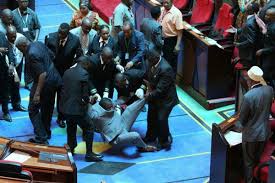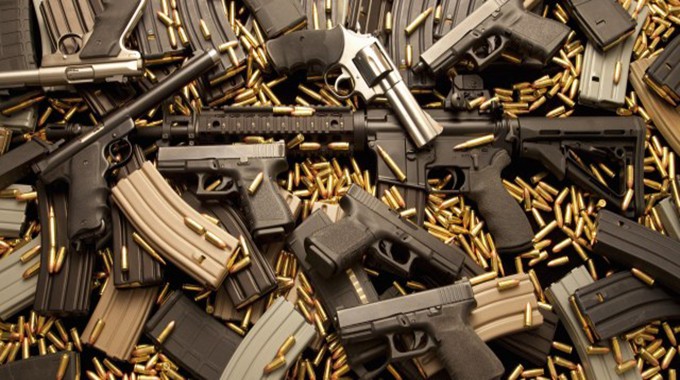Charles Mabhena
The pandemonium that took place in the House of Assembly this Tuesday after the police were called in to arrest a member of parliament have exposed the way how the country’s laws can be inconsistent in defining whether parliamentary privileges and immunities do really exist or not, and to as what really constitute breach of such privileges.
A parliamentary privilege is a total legal immunity enjoyed by MPs which grants them protection against arrest in civil action or criminal liability for actions done or statements made in the course of their legislative duties.
The drama started after Zvishavane Ngezi MP John Holder raised a point of order to the national assembly that MDC-T MP, Costa Machingauta’s dress code was not consistent with parliamentary behaviour. This prompted the Deputy Speaker of Parliament Mabel Chinomona to order Machingauta out of the chambers, but he refused, resulting in the Sergeant of Arms, Nicholas Marufu moving in to effect his removal.
Chinomona later called police to arrest Machingauta after having failed to throw the MP out. Other MDC MPs ganged up to protect their colleague from arrest, and it resulted into chaos.
Machingauta was being ejected from the august house because he had come donning a suit made of colours of the national flag. The putting on of national flag colours was abolished by ZANU PF parliamentarians who are the majority in the house, as they linked such dressing to the anti-Mugabe pressure group ‘harshtag this flag’ fronted by the now exiled pastor Evan Mawarire. As such Chinomona had directed Machingauta out, and only to be allowed back on the condition that he changes his outfit.
MDC-T vice President who is also Kuwadzana East MP, Nelson Chamisa condemned the moving into parliament by the police describing it as an invasion of the House by the law enforcement agency and therefore not constitutional.
Chamisa added that the issue of dressing was so trivial that it couldn’t have had warranted the summoning of the police force. More so taking into account that there are a number of criminals including ministers who are being left roaming the streets scott free, he noted.
Chinomona, however, defended the bringing in of the police into the parliament saying it was justified under section 25 of the Privileges, Immunities and Powers of the Parliament Act, which reads as follows;
“Any person who creates or joins in any disturbance in or within the vicinity of Parliament whilst Parliament is actually sitting may be arrested without warrant on the verbal order of the Speaker and kept in the custody of an officer of Parliament or a police officer until a warrant is issued for his detention in prison.”
Part III (8) reads; “No person who acts reasonably and in good faith and without culpable ignorance or negligence shall be liable in damages or otherwise for anything done under the authority of Parliament and within its legal powers or under any warrant issued by virtue of those powers.”
While it should also be noted that in every setting there must be ground rules so that the privileges are not abused by some unscrupulous members who may use it to willingly humiliate others. The issue is of where to draw a boundary to determine if the said MP has indeed overstepped his privilege, or has the House abused its own powers in accordance with the laws. This has always created debate as that of the hen and the egg
Human rights activist Dr Pedzisai Ruhanya is of the belief that there should be clear cut demarcation as checks and balances so that issues of abuse of powers can be defined and be dealt with precision. He believes without that, the laws can be manipulated by the authority to suit their tastes and be cleverly used as weapons for oppression.
“Without proper monitoring mechanisms in place, under a ‘police state’ like Zimbabwe laws have been known to be used as an instrument of oppression,” he says.
MDC-T parliamentarian Jessie Majome, weighs in and says the problem with the country’s system is that it has a police force and not police service. “We need police service and not police force,” she says.














